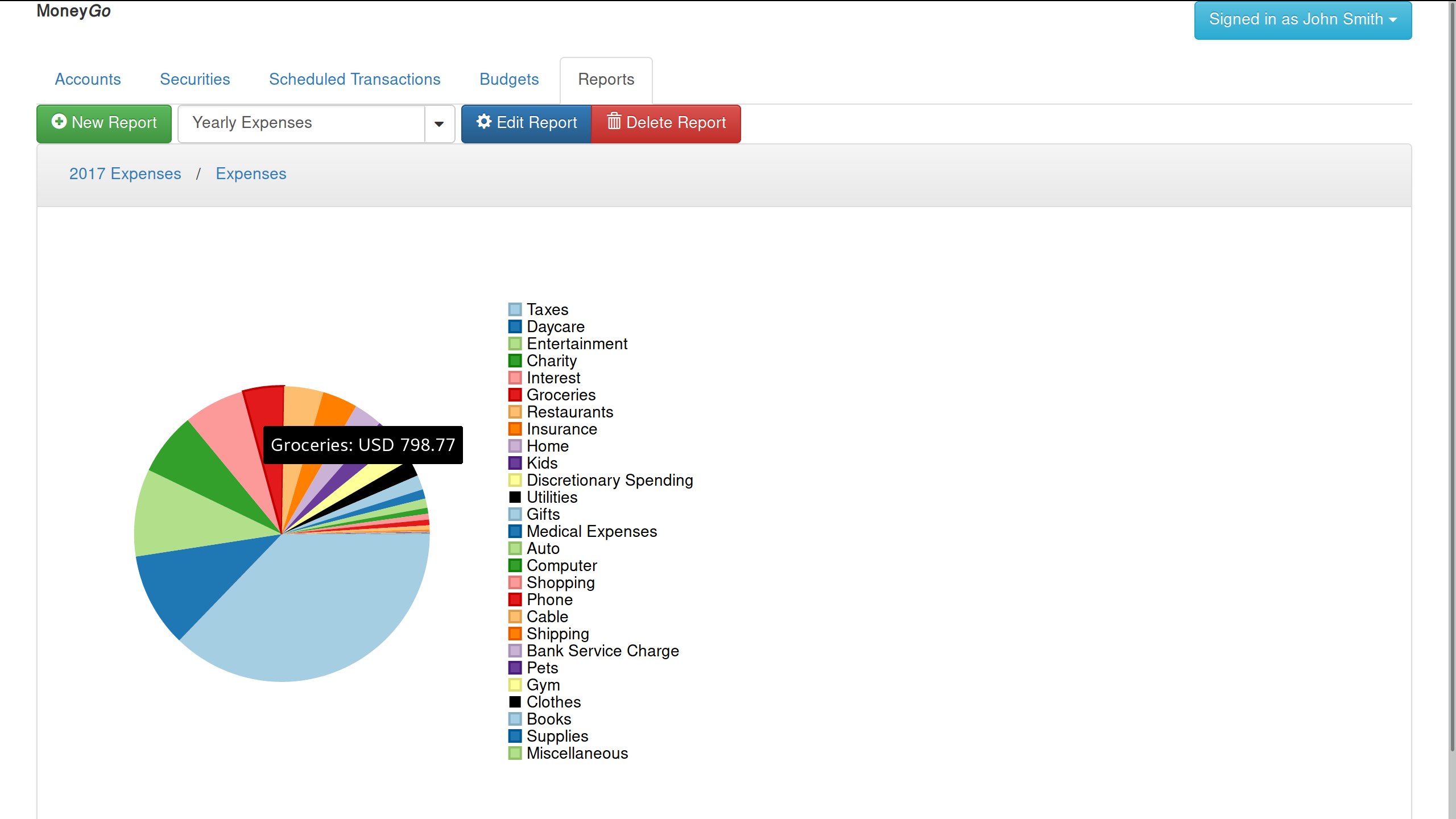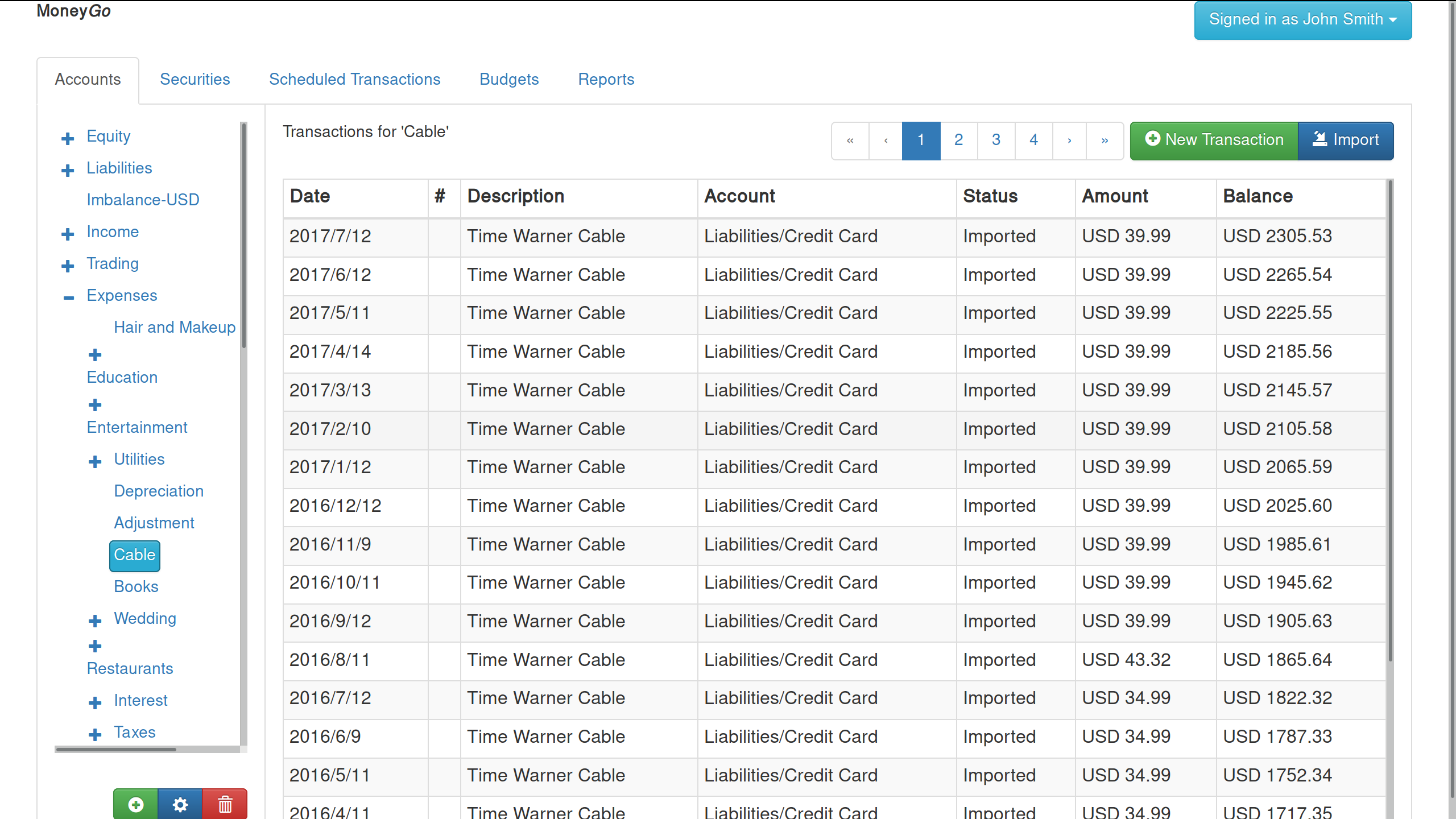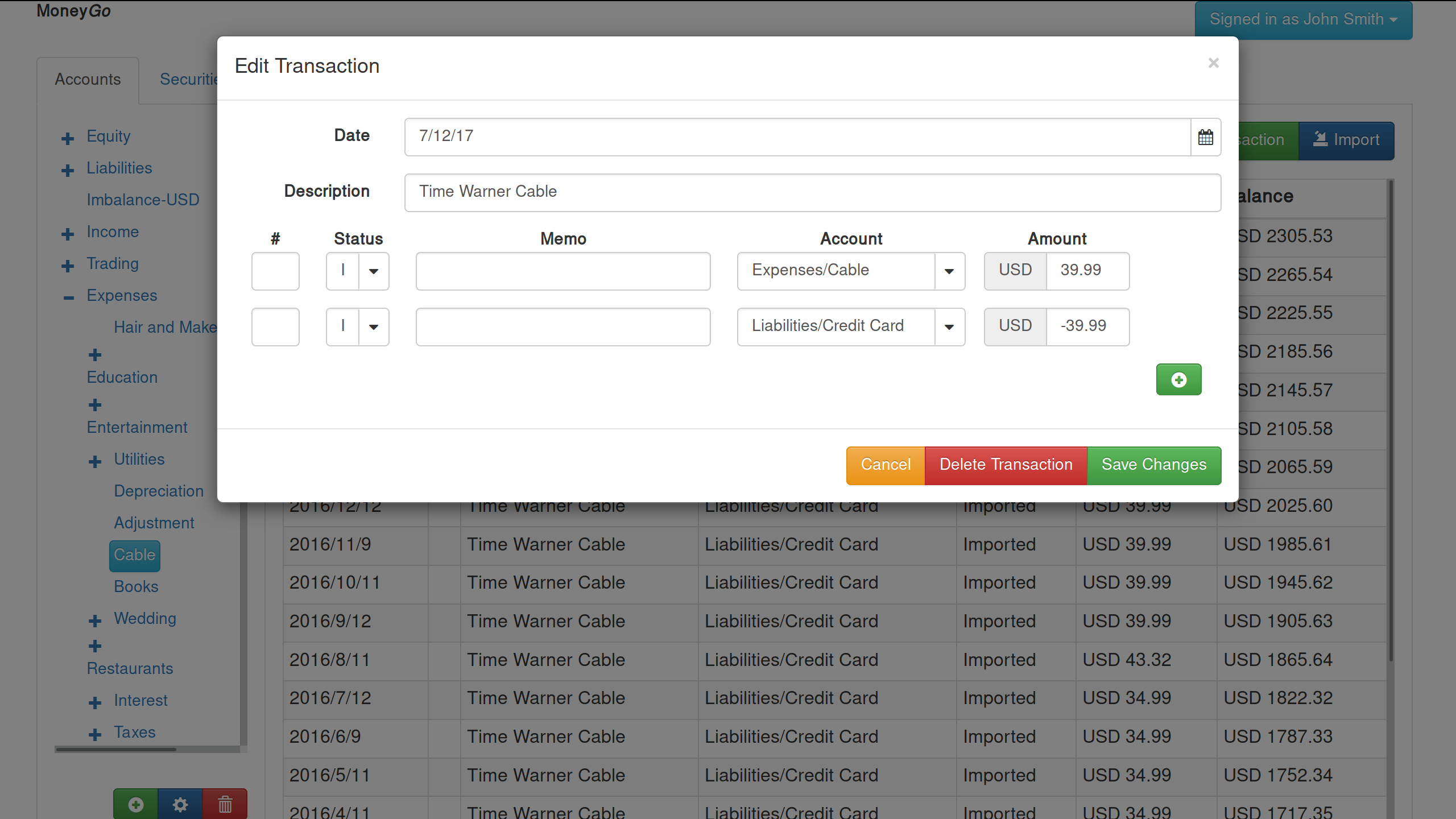* Import them from Gnucash's pricedb * Add support for querying prices from lua for reports * Add documentation for lua reports
MoneyGo
MoneyGo is a personal finance web application written in JavaScript and Golang. It adheres to double-entry accounting principles and allows for importing directly from financial institutions using OFX (via ofxgo).
This project is in active development and is not yet ready to be relied upon as your primary accounting software.
Screenshots
Usage Documentation
Though I believe much of the interface is 'discoverable', I'm working on documentation for those things that may not be so obvious to use: creating custom reports, importing transactions, etc. For the moment, the easiest way to view that documentation is to browse it on github.
Installation
First, install npm, python, curl, and go >= 1.7 in your distribution. Here is how in Arch Linux:
$ sudo pacman -S npm curl go python
Install browserify globally using npm:
$ sudo npm install -g browserify
You'll then want to build everything (the Golang and Javascript portions) using something like:
$ export GOPATH=`pwd`
$ go get -v github.com/aclindsa/moneygo
$ go generate -v github.com/aclindsa/moneygo
$ go install -v github.com/aclindsa/moneygo
This may take quite a while the first time you build the project since it is
auto-generating a list of currencies and securities by querying multiple
websites and services. To avoid this step, you can touch src/github.com/aclindsa/moneygo/cusip_list.csv before executing the go generate ... command above. Note that this will mean that no security templates
are available to easily populate securities in your installation. If you would
like to later generate these, simply remove the cusip_list.csv file and re-run
the go generate ... command.
Running
Assuming you're in the same directory you ran the above installation commands from, running MoneyGo is then as easy as:
$ ./bin/moneygo \
-port 8080 \
-base src/github.com/aclindsa/moneygo/
You should then be able to explore MoneyGo by visiting http://localhost:8080 in your browser.
Missing Features
- Importing investment transactions via OFX
- Budgets
- Scheduled transactions
- Matching duplicate transactions
- Tracking exchange rates, security prices
- Import QIF
- Finishing reports


